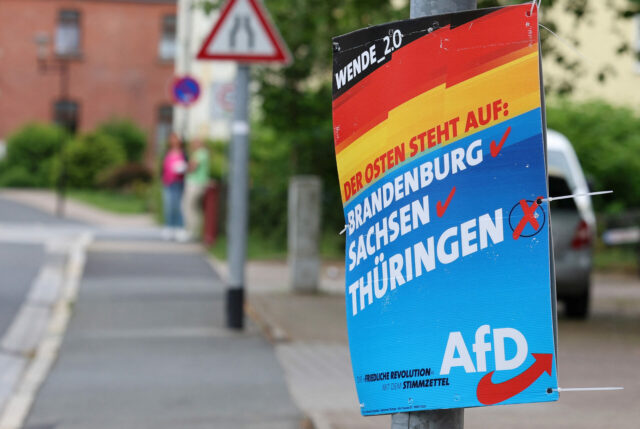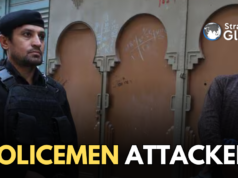The far right German party Alternative for Germany (AfD) is slowly making inroads into east Germany. This is significant as the national elections are next year, and the party is polling in second place at around 16%.
Rise of AfD sees right-wing extremism becoming normalised
This has ensured that right-wing extremism is now accepted in eastern regions such as Thuringia. The AfD won 26% of the vote across the state of Thuringia, up eight points from 2019.
In the east German district council of Sonneberg, Roland Schliewe said jobs could not be given to North Africans because they had a low IQ. He was however re-elected to Sonneberg’s council on Sunday.
In neighbouring Hildburghausen, a man sells merchandise featuring Nazi and Ku Klux Klan motifs. He won 25% of the vote and is now in a run-off to become district administrator.
Sea change in German politics
Such events were for decades unthinkable in a Germany. The country was so traumatised by the Nazi era that it installed checks and balances to prevent right-wing extremists ever taking power again.
But in eastern Germany, where incomes are lower and mainstream parties less rooted the party is gaining ground. The AfD portrays itself as the target of a complacent, self-serving establishment that it stands ready to sweep away.
The BfV domestic intelligence agency suspects the party of “extremism.” It has been certified as such in Thuringia. However, that has not made a difference.
Political scientist Oliver Lembcke at the University of Bochum said today people feel freer to support the AfD openly.
“They are incrementally conquering the lower levels, conquering spaces.”
The AfD has not made it into state or federal government as other parties refuse to form a coalition with it.
Discourse of politics is now changing
Nationwide, the AfD also has little chance of attaining power next year. But its role in eroding the vote of traditional parties is set to promote more strained and ultimately unpopular alliances. Chancellor Olaf Scholz’s current Social Democrat-Liberal-Green coalition is a case in point.
However, the discourse is shifting. Physical attacks on German mainstream politicians is now more common. Intelligence agency officials say that hateful content has now become more mainstream.
Lembcke says there is now a clearing-out of established political culture.
“Meanwhile, the AfD doesn’t face as much stigma anymore and is filling the void.”
With inputs from Reuters
Traveller, bibliophile and wordsmith with a yen for international relations. A journalist and budding author of short fiction, life is a daily struggle to uncover the latest breaking story while attempting to be Hemingway in the self-same time. Focussed especially on Europe and West Asia, discussing Brexit, the Iran crisis and all matters related is a passion that endures to this day. Believes firmly that life without the written word is a life best not lived. That’s me, Ashwin Ahmad.





